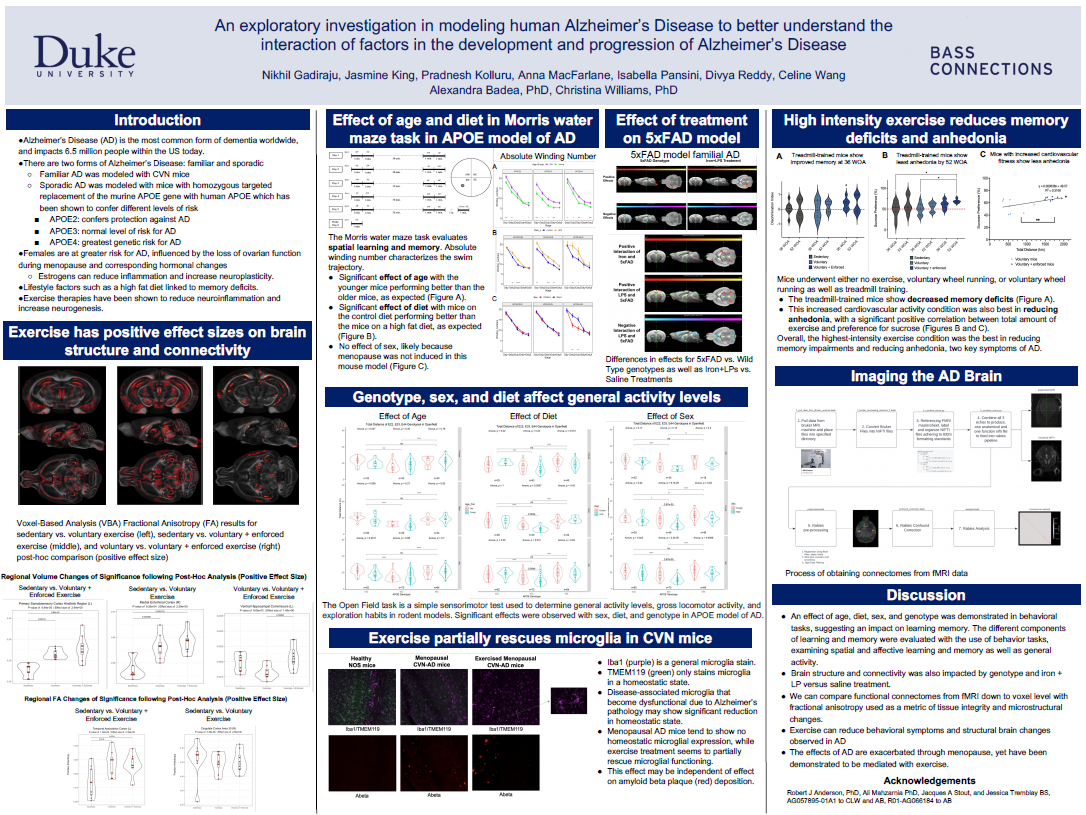Understanding Risk Factors and Prevention for Alzheimer’s
Project Team
Alzheimer's disease is the seventh leading cause of death in the United States, with the number of affected individuals projected to be 7.1 million by 2025 and 13.8 million by 2050. Two-thirds of people with Alzheimer’s are women. To date we have no cure, no clear understanding of why women are more at risk and only some clues as to the disease’s origin. There is an urgent need for new insights into this devastating illness as well as new treatments and therapies.
This team used humanized mouse models to examine several risk factors for Alzheimer’s, such as age, loss of ovarian function at menopause, a sedentary lifestyle and a high-fat diet. They also worked to determine how chronic exercise might delay onset and reduce risk. In addition to observing performance on cognitive tasks, they used fMRI to measure the effects of these factors on the volume, blood flow and tissue integrity of the mice’s brains.
The team’s research supports the understanding that variations in genotypes, age, diet, sex and physical activity all affect disease-related changes. Their study suggests that, while menopause can exacerbate the effects of Alzheimer's disease, exercise may reduce and even delay the onset of these changes.
An Exploratory Investigation in Modeling Human Alzheimer’s Disease to Better Understand the Interaction of Factors in the Development and Progression of Alzheimer’s Disease
Poster by Nikhil Gadiraju, Jasmine King, Pradnesh Kolluru, Anna MacFarlane, Isabella Pansini, Divya Reddy, Celine Wang, Alexandra Badea and Christina Williams

